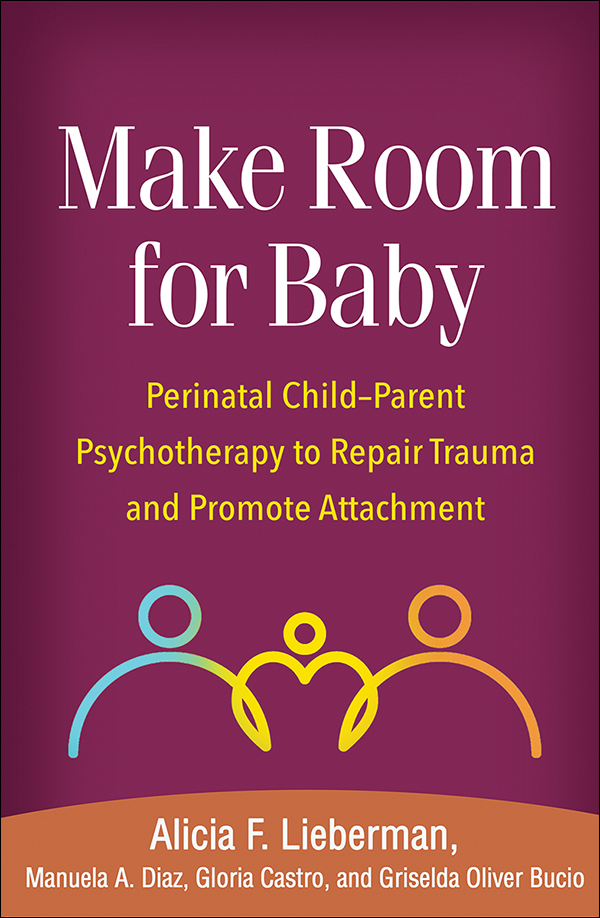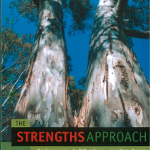This state-of-the-art clinician’s guide describes Perinatal Child–Parent Psychotherapy (P-CPP), a treatment for pregnant women and their partners whose readiness to nurture a baby is compromised by traumatic stress and adverse life experiences. P-CPP, an application to pregnancy of the widely disseminated, evidence-based Child–Parent Psychotherapy, spans the prenatal period through the first 6 months of life. Extended cases illustrate ways to help mothers and fathers understand how trauma has affected them, navigate the physical and emotional challenges of becoming parents, build essential caregiving competencies, and ensure the safety of their babies and themselves. Cultural considerations in working with diverse families are addressed through specific intervention examples.
Contents:
- Introduction
- I. Pregnancy and the Perinatal Period: Hope and Vicissitudes
- II. Perinatal Child–Parent Psychotherapy
- III. Implementing P-CPP: Extended Clinical Cases
- IV. Common Obstacles to Attuned Caregiving
- V. Monitoring Fidelity: The “What” and “How” of P-CPP
- References
- Index
Author Bio:
Alicia F. Lieberman, PhD, is Irving B. Harris Endowed Chair in Infant Mental Health and Professor and Vice Chair for Faculty Development in the Department of Psychiatry at the University of California, San Francisco (UCSF). She is Director of the UCSF Child Trauma Research Program at Zuckerberg San Francisco General Hospital (ZSFGH) and Director of the Early Trauma Treatment Network. Dr. Lieberman is the senior developer of Child–Parent Psychotherapy (CPP). She is the author of numerous books and articles. Her cross-cultural background as a Jewish Latina informs her work with diverse children and families.
Manuela A. Diaz, PhD, is a clinical psychologist in private practice in Berkeley, California, where she specializes in maternal and infant mental health and the application of mindfulness and neuroscience to the treatment of mood disorders and trauma. Dr. Diaz is an affiliated clinician at the University of California, San Francisco (UCSF), Child Trauma Research Program at Zuckerberg San Francisco General Hospital.
Gloria Castro, PsyD, a clinical psychologist and Certified Sexual Assault Counsellor, is a bilingual psychotherapist at the University of California, San Francisco, Child Trauma Research Program at Zuckerberg San Francisco General Hospital. In this role, she implements Perinatal Child–Parent Psychotherapy throughout pregnancy, labour, delivery, and postpartum with women with histories of traumatic experiences. She also provides infant mental health services in the neonatal intensive care unit and the high-risk paediatric Kempe Clinic.
Griselda Oliver Bucio, LMFT, is a psychotherapist in private practice in Walnut Creek, California. For over 14 years, she was a staff clinician and clinical supervisor at the University of California, San Francisco, Child Trauma Research Program at Zuckerberg San Francisco General Hospital, where she also participated in clinical research. Ms. Oliver Bucio specializes in the treatment of young children exposed to trauma and of pregnant women exposed to domestic violence and other traumatic events.
Review:
“Actively helping mothers to raise healthy kids has been shown to be the single most effective mental health intervention there is. Lieberman and her colleagues have decades of clinical experience, and extensive clinical research studies show the effectiveness of P-CPP, which focuses on mitigating how parents’ own trauma histories get in the way of effective parenting. This highly efficacious approach, which includes identifying traumatic experiences and a supportive approach to ‘speaking the unspeakable,’ has been scientifically shown to improve parent–child relationships and to promote safety and hope. A ‘must read’ for all of us working with traumatized children and families.” – Bessel A. van der Kolk, MD, Founder and President, Trauma Research Foundation, Boston, Massachusetts





